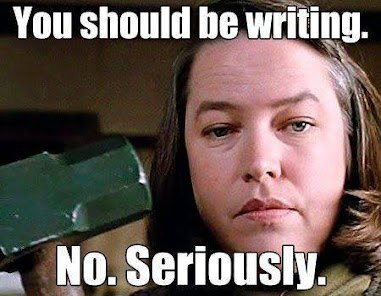Here's another classic masterpiece by Wordsmith Maestro, Zoe Sharp
It comes as no surprise to those who know me that I love playing with words. My dictionary is falling apart and decorated with Post-It notes of words that would make great titles, names, or just ones I love the sound or shape of. Looking up anything always takes me longer than I expect because I get very easily side-tracked. I collect weird meanings and derivations of unusual words and phrases.
But it’s not just unusual words that fascinate me. I love common words with unusual
Homophones
In UK English, we have both practice and practise—noun and
And although in UK English we would ask someone to use their best
One that often seems to cause confusion is callous, meaning to be insensitive or to have a cruel disregard for others, and can also mean hardened and thickened, but callus particularly means a thickening, or a hard thickened area, of skin or bark. So, someone might have either callous hands, or callused hands—or even callous, callused hands—but the meanings would be very different!
While androgynous means having both male and female characteristics, androgenous means having only male offspring.
Everyone knows what angry means, but angary is a legal term meaning a belligerent’s right to seize and use neutral or other property, subject to compensation.
Pursue means to harass or persecute—or, in Scots law, to prosecute—and Spenser
Consent might be to agree or comply, but
The meaning of blanket is familiar, but blanquet is a variety of pear, blanquette is a ragout of chicken or veal made with a white sauce, and bloncket means grey. (That bloke Spenser gets everywhere.)
A lake is not only a body of water, but also a small stream or channel, or a reddish pigment made from combining a dye with
While a block is a mass of stone or wood, a bloc is a combination of parties, nations, or other units to achieve a common purpose.
One that always used to confuse me as a kid was the difference between demure, meaning chaste or modest, and demur meaning to
And I know for a fact I’ve accidentally mixed up defuse, to take the fuse out of a bomb or, according to Shakespeare (and what did he know?) to disorder, with diffuse, meaning widely spread or wordy, or also to pour out all around; to scatter.
A clue might be anything that points to the solution to a mystery, but it’s derived from
To be discreet means to be careful of intentionally unobtrusive, but discrete means distinct or unconnected.
Another I keep coming across in my recent reading is
And this is before we get to the words with one spelling but lots of different meanings...
Homonyms
To
Swanky can be used as a compliment for something that’s strikingly fashionable or luxurious, but it can also mean to be overly ostentatious, or using one’s wealth, knowledge or achievements to try to impress others. In Scots, swanky means an active or clever young fellow, one who is tall but
Pernicious means both destructive and highly injurious, but also (according to Milton) swift, ready and prompt.
A tent could be a portable canvas shelter, an embroidery or tapestry frame, a plug or roll of soft material for dilating a wound, or the Scots word for taking heed or notice of.
A rabble could be a disorderly mob, but also a device for stirring molten iron etc in a furnace.
To cleave is
A race is the descendants of a common ancestor, a fixed course or track over which anything runs, the white streak down an animal’s face, a rootstock of ginger (Shakespeare) to raze or
One of my pet hates is the word feisty,
Anyway, there are LOTS of others, so what are your
No Word of the Week this week. I think I’ve used quite enough, don’t you?




















I'd not seen this before and I Love it!
ReplyDelete